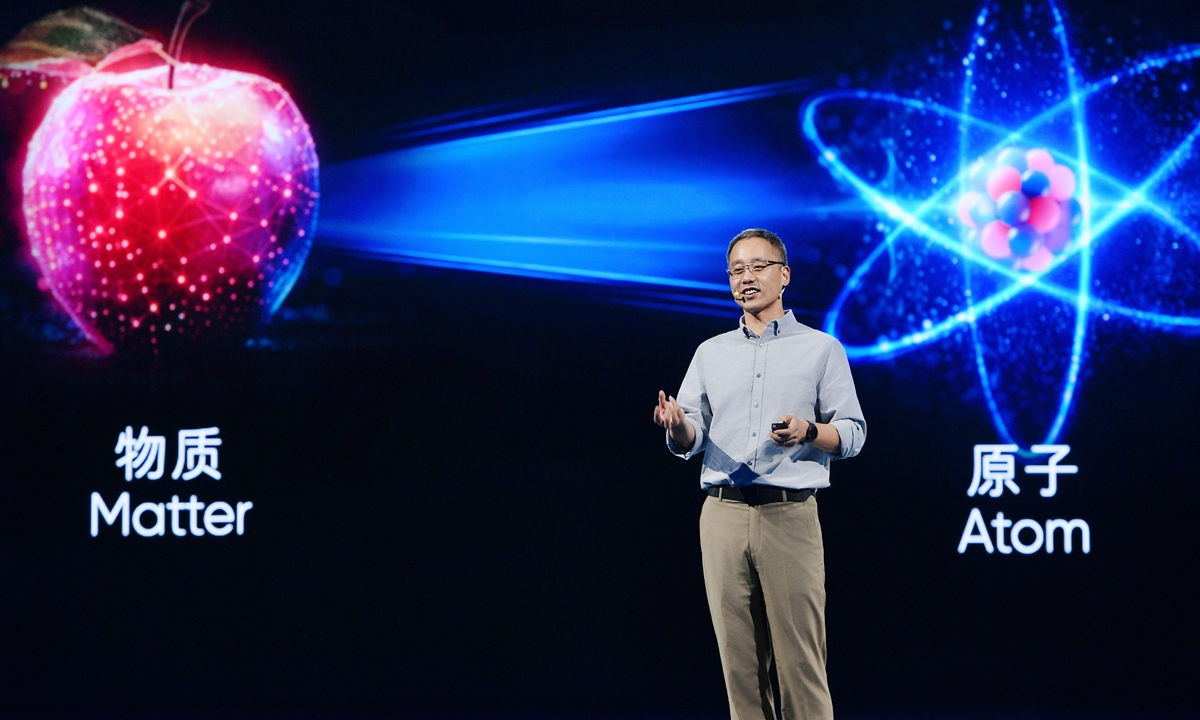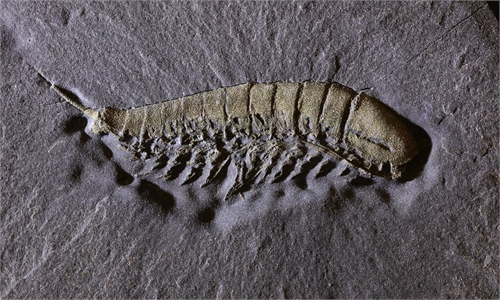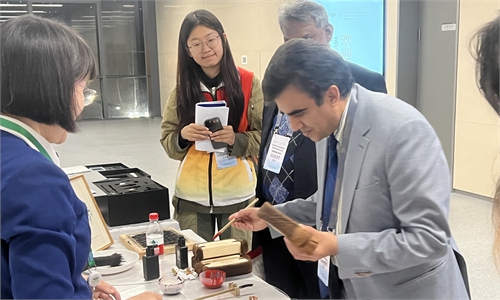ARTS / CULTURE & LEISURE
Exclusive: China's dark matter catcher chimes in on new efforts, sci-fi craze

Liu Jianglai speaks at the WE Summit. Photo: Courtesy of Tencent
"If we can increase the detection sensitivity by two to three orders of magnitude, we expect that we will be close to possible traces of dark matter in 10 years," Liu Jianglai, a professor from Shanghai Jiao Tong University and the chief scientist of PandaX group of the university, told the Global Times during an exclusive interview on Sunday. The more sensitive the detector, the more possible discoveries that can be made, he noted.
Liu shared his views on dark matter together with other top scientists in Chengdu, Southwest China's Sichuan Province for the WE Summit hosted by China's tech giant Tencent under the theme of Tipping Point.
The event has aimed at fostering public engagement with frontier sci-tech exploration, showcasing the visionary minds behind these developments and stimulating interest in fundamental science. Kip Thorne, laureate of the 2017 Nobel Prize in Physics, brought his views in a talk called The Amazingly Rich Warped Side of Our Universe, while Xue Qikun, an academician of the Chinese Academy of Sciences, talked about exploring the quantum world.
About 350 kilometers away from Chengdu is the world's deepest and largest underground physics laboratory, the China Jinping Underground Laboratory. There, Liu and other Chinese scientists are working in the deepest, largest, ultra-clean underground space for scientific research day and night, hoping to unveiling the mystery of dark matter.
"I am sometimes very optimistic and think that dark matter may be discovered by the detector tomorrow," he said. "It is still a long process to prove its existence. You not only have to discover it, but also need to prove that you did. So every time after an experiment, I am very excited before opening the data box and I am always optimistic."
Because of a series of excellent science fiction literary and artistic works such as The Three-Body Problem and The Wandering Earth, the public's enthusiasm for science has been greatly raised. In the past five years, Liu said that more self-media accounts of science popularization have appeared.
"It is a good thing, although some of them require a scientific background to understand. Their appearance and popularity have enhanced the whole society's true respect for science and promoted the scientific spirit," he added.
"And we also need to let people know that doing science is not hard or painful. Instead, we, scientists quite enjoy it."
The fast development of AI has caused changes in the life and work of scientists in various aspects. However, Liu still holds the idea that "scientific ideas and scientific minds come from people."
In his mind, asking an AI or Chatgpt to tell you what the best way to do research is not effective as they are only based on a database. "Obviously people are very important in this regard."
However, "a scientist needs to have an open mind - he or she really needs to know where today's technology has gone and what things can be used to advance research," Liu said.
"To do many things on the shoulders of giants, we need to be open-minded scientists. This year's Nobel Prize was also awarded to AI because of its development. Giving it to this field means that AI actually provides a methodology for conducting research," he said.




